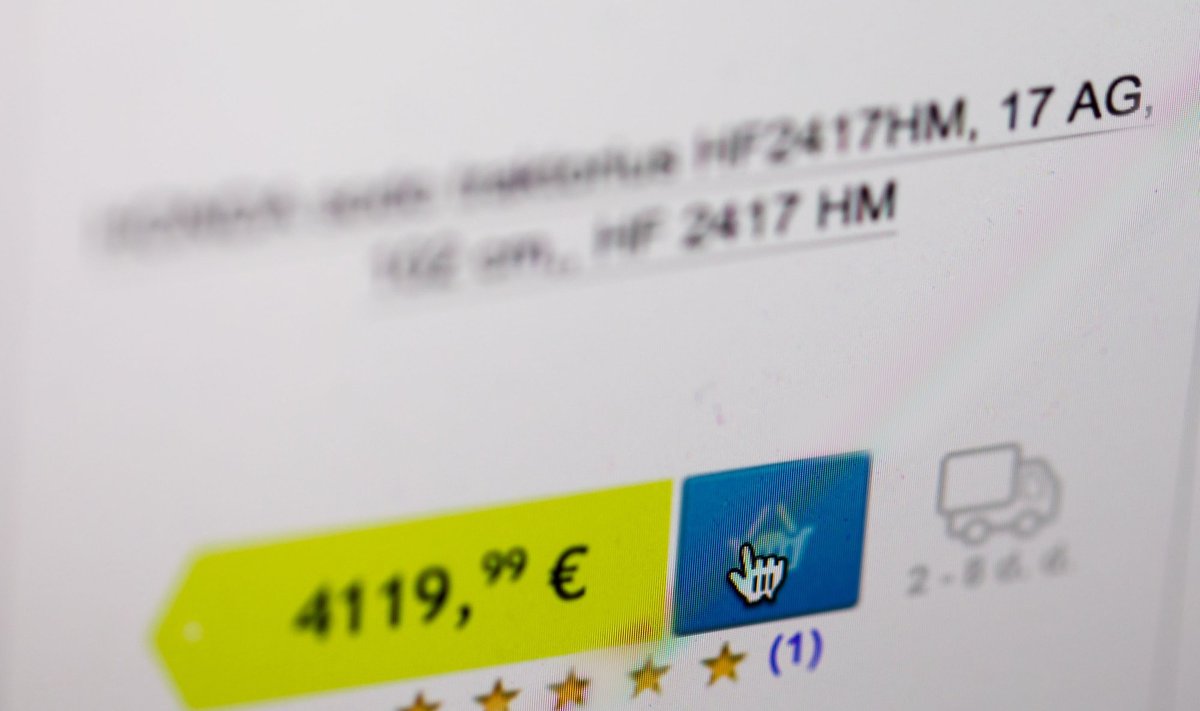“Shopping” in a fake online store can cost all money in one’s bank account
According to Tomas Parnarauskas, cybercriminals set up fake online stores as fronts to steal money and personal data.
“A fake online store is a common method of fraud. To attract online shoppers, cybercriminals announce incredibly large discounts on their goods. However, once a customer purchases anything, they never receive the goods. These fake stores also can be used to gather people’s personal data. The credit card information submitted during the transaction can then be used to steal money from the bank account. Also, there are times when people do get the goods, but they are obviously counterfeit, poor quality, or completely different than what they had ordered,” lists T. Parnarauskas.
Attempts at fraud increase before the holidays
This year, law enforcement authorities saw a case where a never-before heard online store sold mobile phones to two residents of Šilutė, who then never received the phones. A similar case also happened to a customer who “purchased” 4000 EUR worth of home equipment in a fake online store.
The incidence of such cases spikes during the holiday season, when people search for presents and, in effort to save time, shop online.
Last year, during only one week in the end of November, around 300 people fell victim to cybercriminals while online shopping.
Critical assessment of information helps protect against fraud
T. Parnarauskas draws attention to the fact that fraudsters can usually be recognized by several common traits.
“While shopping online, you must always critically examine and evaluate whether the particular store is reliable. You can recognize that you are visiting a fraudulent store if all prices are suspiciously low, if the design and the name are very familiar to a different, well-known online store. Also, when you are purchasing the goods, a private rather than a company bank account is provided. However, sometimes cybercriminals actually establish companies to run their operations. If you see that the online store has almost no information about it, if its domain has been registered very recently, such signs can signalize potential fraud,” warns the expert.
T. Parnarauskas also lists several items of advice that helps recognize and avoid fraudsters:
1. Do not fall for extremely large discounts. If an online store tries to lure you with extremely low prices that no other seller offers, you should be wary. If, for example, an item that previously cost 700 EUR now costs 70 EUR, this signals potential fraud.
2. Check for information about the company. Check if the company provides full information about itself (address, contact information), how recently it was registered, what is its financial situation, and for any customer reviews. Online stores that were created just a couple of months ago may be used to exploit unsuspecting customers.
3. Buy only from trustworthy, recognizable stores. Choose well-known, large, and established online stores.
4. Pay only after delivery. It is better and safer to choose online stores that offer the option to pay only after the delivery, either by card or by cash.
If it so happens that you fail to avoid fraud while shopping online, i.e. you do not receive your order and cannot reach the seller, contact the police or your bank.
